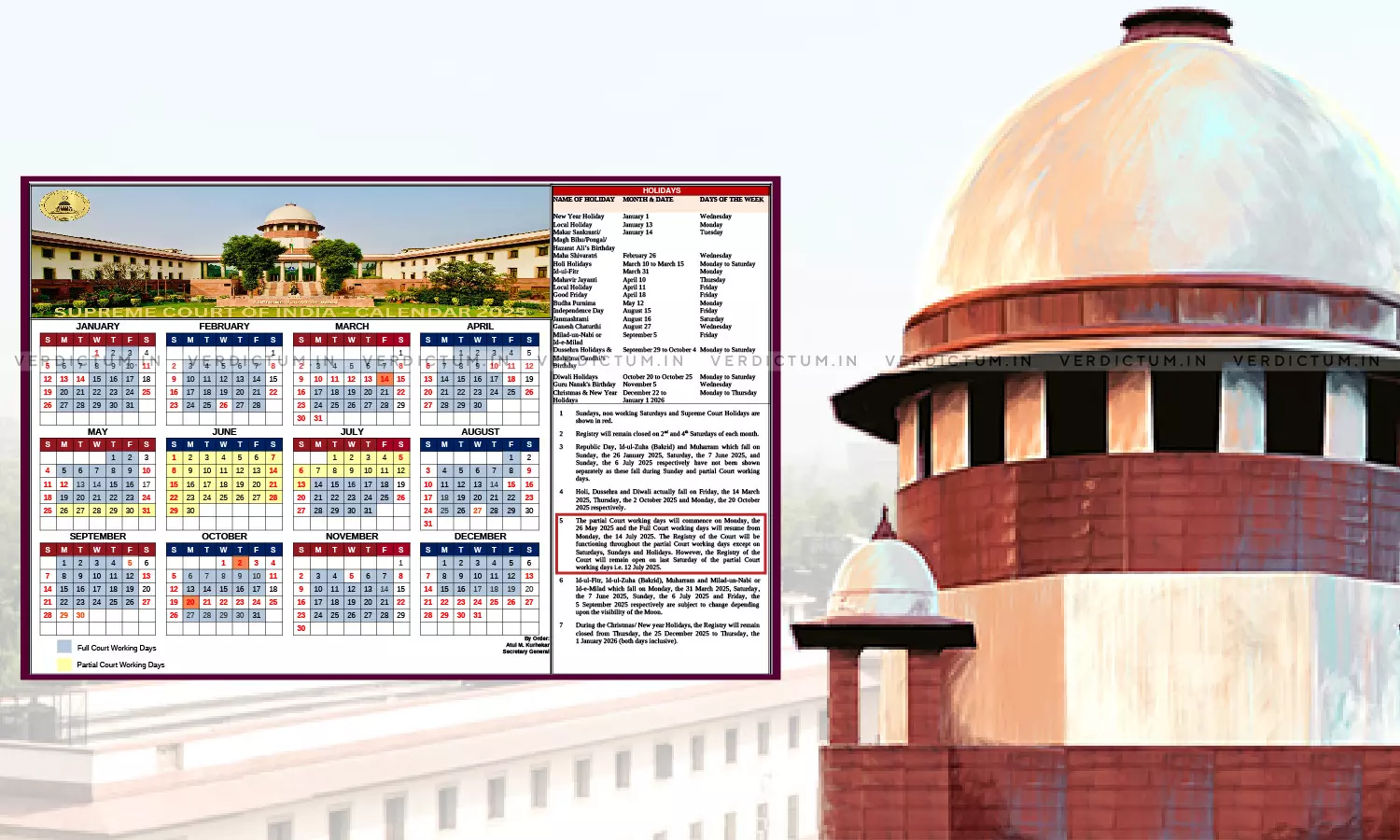
Supreme Court To Have 'Partial Court Working Days' Instead Of 'Summer Vacations'
 |
|In a major shift in judicial operations, the Supreme Court of India will replace its traditional summer vacations with a system of "partial Court working days."
This change comes as part of the Supreme Court (Second Amendment) Rules, 2024, which were notified by the Court with the approval of the President. The revised rules aim to ensure that the Court continues to function effectively during periods of reduced sittings, addressing urgent matters while providing flexibility for judges and staff.
The new rules, which come into effect immediately upon publication in the Official Gazette, make significant adjustments to the structure of the Court’s annual schedule. Rather than closing completely for extended summer holidays, the Court will now operate with a modified schedule known as "partial Court working days." During these periods, the Court will remain open for a set number of days, with operations managed as per the directions of the Chief Justice.
The notification dated November 05, 2024 read, “4. In Order VI of said rules, in rule 6,- for rule 6, (a) in the opening paragraph, for the words “During the vacation, the Vacation Judge”, the words “During the partial Court Working days, the Judge”, shall be substituted; and (b) for clause (1), the following clause shall be substituted, namely:- “(1) Applications for special leave to appeal in urgent cases where interim relief is prayed for subject to the condition that the Judge shall not decide such a petition if it raises substantial question of law as to the interpretation of the Constitution.”.”
Key Features of the Change:
- Partial Court Working Days: The Court will now have partial working days spread throughout the year, replacing the traditional long summer break. The length and timing of these partial working days, including any holidays, will be determined by the Chief Justice. Importantly, the total number of such days will not exceed 95 days annually, excluding Sundays.
- Urgent Matters Handled During Reduced Operations: During partial Court working days, one or more judges may be assigned to hear urgent matters, ensuring that critical cases do not face unnecessary delays. This includes admission hearings, regular matters of an urgent nature, and other cases as directed by the Chief Justice.
- Adjustment in Terms and Sittings: The Court's sittings will now be divided into two annual terms, with the first term concluding before the Christmas and New Year holidays and the second term beginning afterward. The shift to partial Court working days allows for greater flexibility in scheduling and ensures that judicial proceedings continue smoothly throughout the year.
- Special Leave Applications: The rules also specify that special leave applications, particularly those involving urgent interim relief, will be heard during partial Court working days. However, judges will not decide on cases that raise substantial constitutional questions unless they are heard in full Court.
Click here to read/download Notification